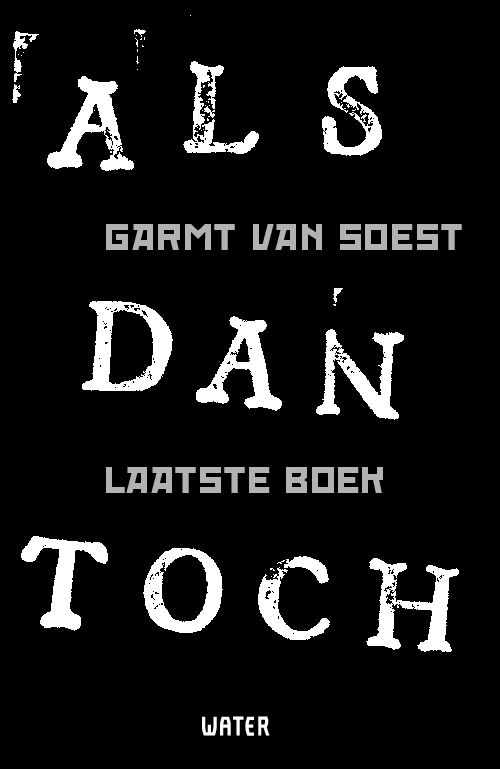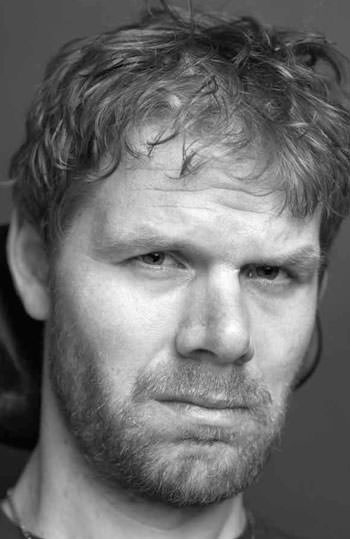True story: I was at this rooftop wedding in New York. Impressive views of the nighttime city, all of the lights. We were nearing the end of the serious part, the “Yes, I do”’s already exchanged. The very official looking judge said to the couple: “Now, repeat after me. We’ve come a long, long way together.” They duly obliged: “We’ve come a long, long way together.” Judge: “Through the hard times and the good.” While bride and groom repeat, a tiny corner of my brain begins to itch. Judge: “I have to celebrate you,” Couple: “I have to celebrate you,” These lines are beginning to sound familiar. Could it be some ancient marriage vow that I heard in a previous life? The judge continues, “… baby.” Couple: “baby.” WTF? Then their last line sounds: “I have to praise you like I should.”
Later, the bride told me they wanted to use “Fucking in heaven”, another track from the same album, but, you know, her mother was at the wedding, so … I’m glad they didn’t, because I wouldn’t know what to write about fucking in heaven.
Remember that foreshadow about praise? I think it can be a pretty hard thing to receive, praise. At least it was for me, the first thirty years or so. At the start of my career, I was very insecure (who isn’t, right after puberty?). I was accustomed to looking for my “opportunities for growth”, aka faults.
Criticism was good, because it affirmed your self-image and gave you something to work with. Performance reviews that I underwent or conducted would often go like this: “Ok chief, whatever you say, but what do I need to improve? Tell me my shortcomings, instead of what I do well.” Hey, I don’t knock it, it helped me grow, and get the challenges that I craved.
There was this man, Dan, who was probably in an important position at our company, but I never really understood what he did, other than being an extremely nice guy. He knew I liked whisky, so out of the blue, on Monday morning, he gave me a bottle of Talisker. “From the Duty Free”, he only said. He flew in from Scotland, for reasons puzzling me, showering gifts along the way.
I remember an assignment in Dublin. He showed up there as well and joined us for liquid dinner (Guinness is, like the tubefood I live on now, a full and complete source of nutrition). In the small hours of the night, one colleague was still working furiously on his laptop, right there in the hotel lobby. Dan and I had a last beer. We talked about our friend Lorraine who was in the last weeks of her pregnancy. He gave me the best tip ever: “Don’t send flowers after the baby is born. Everybody does that. Send flowers now. The last weeks can be really tough, and nobody sends flowers for what is yet to come.” We talked some more and I don’t remember how it came to be a topic, but suddenly he was saying all these nice things about me. It’s not what he said, but how he said it. Somehow it was a perfect moment. He could have called me an eggplant and it would’ve had the same effect.
Normally, compliments would only just feed my arrogance and cockiness. Arrogance, incidentally, is the opposite of being self-assured. Why shout that you are better than others if you know you’re good at what you do? You’re just trying to convince yourself, and it’s not working. Whenever a client patted us on the shoulder, I would say, aloud, “Of course, I am that good.” It felt like a hit, a junkies fix, the effect wearing off too fast. The chase for that fix soon started over, hurtling myself towards another impossible problem. Sure, I had fun along the way, but you have to wonder: was the addiction using me or was I using the addiction? Who was in charge?
The praise that Dan had managed to inject me with was different. It crept beneath the addiction and told me I was OK. Not super. Not only if I made the next challenge. Just … OK. Just sit down for a second, look back, see that it’s OK. Take a breath, it’s OK. I’m OK.
If our employer just paid Dan to have late-night inebriated conversations in hotel bars to deliver compliments, just to do that, he would be worth his salary.
OK, I am exaggerating. I was probably extraordinarily insecure, and as a result, I now overemphasize that part of any manager’s responsibilities. There were several “Dans” throughout my career, and they all helped me to do a much better job by injecting “it’s OK” into my system. I don’t know, like I said, I’m probably super insecure, although most people I worked with would think the opposite, and that’s true as well, because when I was working, it felt so good to do something I was good at.
You have no idea how much I miss my job. It brought so much … Confidence, freedom, joy, connection, even bits of meaning … Good thing I let it fill me up – it helps fuel me to this very day, this fucking awful day, because today my cheek and eyes are trembling more than ever. ALS is having a party on my face, celebrating that it’s winning territory. Fucker. It makes typing so slow today – like carving each letter out of granite with my teeth!
Sorry. Had to vent.
In Plum Village, the monastery of Zen Master Thich Nhat Hanh, the monks have a ritual called “Shining the light”. I am not entirely sure how it works because I was never there long enough to see or experience it. I know that it is about giving loving feedback to one person, by a group that knows that person intimately. The group gather in a serene setting and once the ritual has opened everyone in turn speaks from their heart (or
hara) to the individual in the spotlight. Basically, it’s about bestowing all the loving feedback imaginable upon someone coming from a group that knows that individual intimately. It’s kinda the right way to do an intervention. Instead of gathering a group of close people to tell someone he/she is fucking up, because you all love that person, you gather that group to shower love on someone because you want that person to know what your love tells you about him/her. Imagine what it is like to be at the center of that!
If one of my friends is in dire straits, I would rather pick the last approach than the classic intervention process. I also think it is way harder to be the subject of “Shining the Light” than an intervention. Maybe that is just me, though, or people who believe Marianne Williamson when she says: “Our deepest fear is not that we are inadequate. Our deepest fear is that we are powerful beyond measure. It is our light, not our darkness that most frightens us.” (read the rest
here) After all, if we fear our true self is actually a shining beacon of to-be-fulfilled promise, getting loving praise/feedback heaped upon us is a direct confrontation with that fear. It also puts the aforementioned insecurity in a whole different perspective. Or maybe it frames it just right, like opposing poles, and the solution is right there in the middle: “It’s OK.” Nothing more, nothing less. (I’ve yet to figure out how to fit my fondness of extremes into this …)
Too New Age for you? Fair enough. Let me give you a pragmatic recipe for cheering up a friend. He/she is in real shit and doesn’t know it or lacks something to get out of it or is just really really blue. You sit down, clear your head and search your memory for the tough battles your friend has won, the times when he (let’s assume it’s a guy) was there for you, the tiny moments of utmost meaning when he said or did something that made such a change that you still remember them now. You write it all down and from this list you distill all his powerful traits, the reasons why he is your friend, his strengths and where and how you can support and reinforce him. Etc. Sounds difficult? No, it’s not. New, perhaps, in which case: practice. You’ll be done in 1-2 hours, just try. Get his best friends to do the same.
Once you’re ready and complete, break into his house and hide behind the couch. Or, just set up a meeting. Once the group is gathered, make sure you really connect with your bluesy friend. Watch
this short video before you go in to understand where to start. Then, take turns to deliver your feedback. Leave the paper on which you wrote your brainstorm and analysis. Tuck it away in the couch as a surprise reminder for later. In case of relapse, tell him where to find it. Finish off with a long group hug. If you absolutely must, you can then say “… And that’s why we think you can stop overdosing on heroine all the time.”
The question behind my mumbling about praise is why we need the approval of others to grow. Obvious answer: because no man is an
island. What matters is how we shape that relationship. At first, I craved approval and appreciation (high salary, happy customers) like a junkie. A functioning junkie with a career, but still, a junkie. As I became aware of that part of my personality, I saw that I couldn’t get rid of it, but I could use it instead of letting it use me.
Actually, you can apply that flip, from “being used by” vs “being in charge” to every single habit, pattern, trait, skill, etc that you are made of. Even thinking itself. Who’s in charge, you or your thoughts? Who is the master of your fate? So, I came to use my sensitivity for approval as a tool to do my job well. I still placed high importance on things like the annual performance ratings, but I wasn’t so dependent on it any more.
Nowadays, I don’t run on praise or approval anymore. I mostly just do. I strive to be valuable; it is almost a daily necessity to add something tiny to the world, something that registers as a positive contribution. That contribution can be as tiny as a smile at just the right time, or a simple email (and there are sad days when it is really nothing more than just that). Whether an act is a contribution or not is measured on an internal scale. The word “internal” in that sentence is important, because (to my own surprise) it signifies that I have finally become the master of my fate and the captain of my
soul. Or rather, that I am not a slave to praise anymore (most of the time anyways). Or even better, that all that meditation has opened up my ears to the voice of God, and that it’s not
me mastering my fate and captaining my soul but something else, the Big Mind or emptiness or why don’t I throw in some more words that have way too many meaning which I hardly grasp.
Let me try that again.
Nowadays, praise feels more like an affirmation that I’m on the right track. Take this blog, for instance. I’m immensely grateful for every single comment, email or person in the flesh giving me praise for writing it. Sometimes the word “inspiring” flies by. That’s scary, because since long I’ve found inspiring others to be one of the highest things a human being can achieve – to touch that piece of someone that yearns to do whatever is on their internal scale of real contribution. Now, it’s not scary anymore. Inspiring someone isn’t something you can do or achieve. It can happen as a result of what you do, but it’s not to your credit. I just write these pieces, and if someone gets inspired by them, great, hurrah even, but I don’t think my ego had much to do with it.
To be clear, I’m not claiming that some divine light flows through me or something. It’s more like how Tom Waits (who else?) describes songwriting: “The songs are floating up there, and they pick who they’re going to flow through. ‘Look,’ they’ll say, ’that guy there has had a lot of practice, he’ll do all right, let’s pick him.’ That doesn’t mean it’s easy, sometimes it takes years of working before a song is ready.” And he doesn’t even have to get them out through his eyes. Of course, he also describes songwriting as gluing macaroni to cardboard and painting it
gold.
It’s also not the case that this is a constant state that I live in. I can’t tell what part of my actions happen like this. I wonder, am I just describing a wish rather than my true experience? No. I like real, I want reality, and after rereading this story ten times, I know this: it’s real.
What also strikes me on reading back those last five paragraphs on becoming less of a praise junkie, is this: something, someone drove me through this lesson, and I should thank it/him for freeing this part of my mind. I curse him often, but credit where credit is true: thank you, teacher ALS. Praise you.





